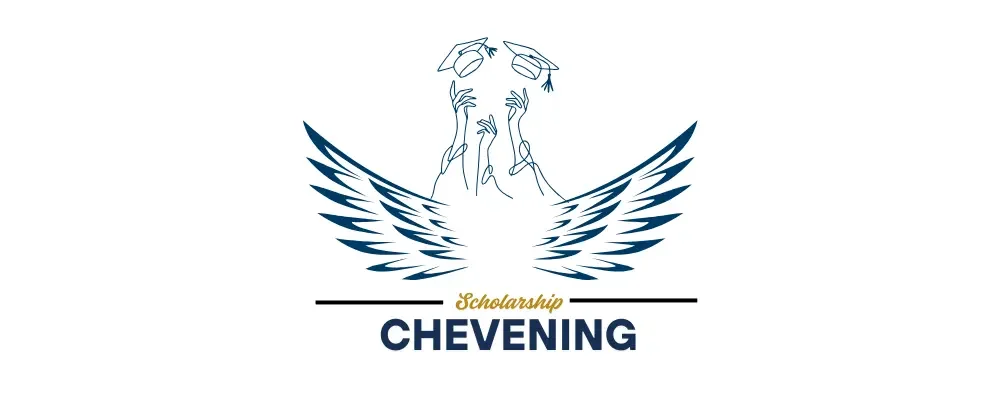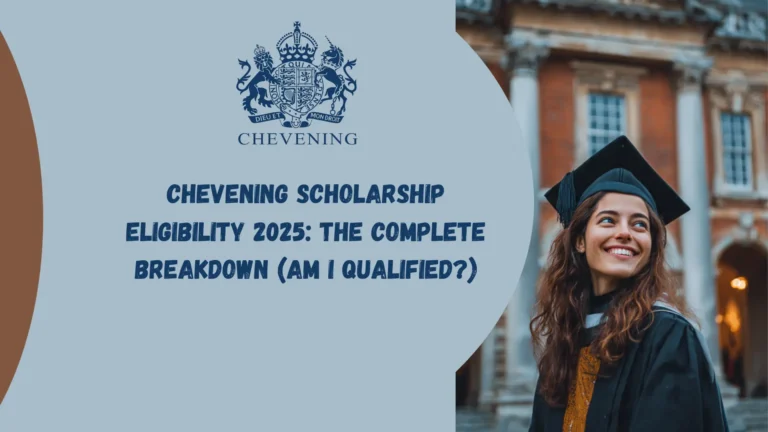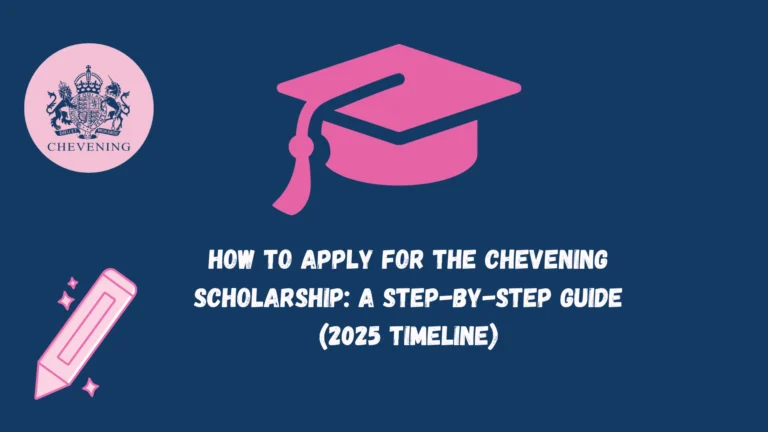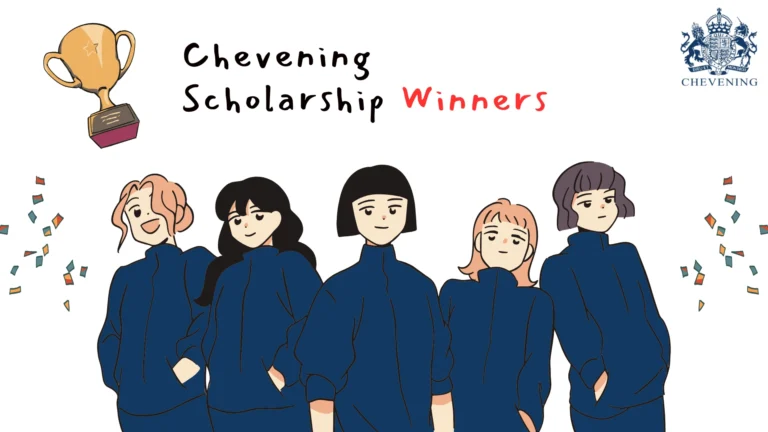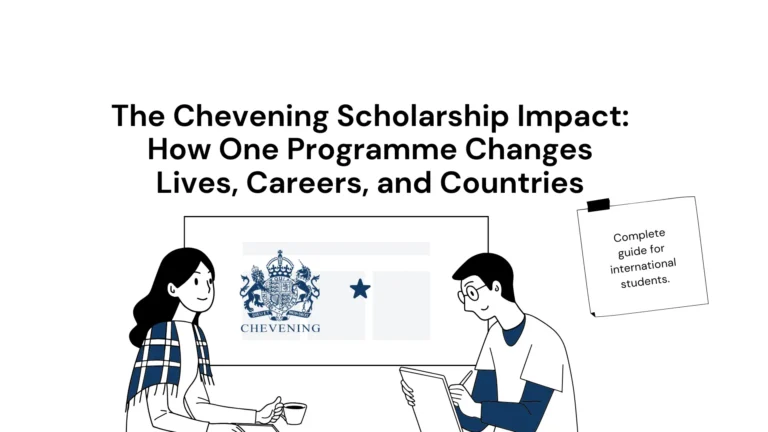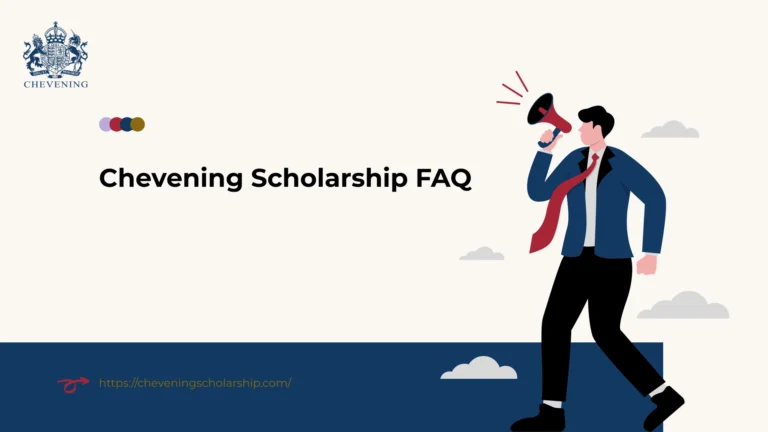Chevening Success Stories: Real People, Real Impact, Real Inspiration
Let me tell you about Amina.
She grew up in a village in northern Nigeria where electricity was sporadic and the nearest university was three hours away by bumpy bus. Her secondary school had one computer for 400 students. When she told people she wanted to study renewable energy in the UK, they smiled politely—the kind of smile that says “that’s nice, dear” while thinking “never gonna happen.”
Today, Amina runs a solar energy company that’s brought electricity to over 50,000 homes across rural Nigeria. She employs 200 people. She advises the government on energy policy. And yes, she’s a Chevening alumna.
These Chevening success stories aren’t fairy tales. They’re blueprints. Real people, real challenges, real transformations. And if you’re reading this wondering whether you have what it takes, the answer in these stories might surprise you.
Why Success Stories Actually Matter
Before we dive into individual Chevening scholarship success stories, let’s talk about why these narratives are more than just feel-good content.
When you’re staring at that application form at 2 AM, doubting whether your leadership experience is “impressive enough” or your English is “good enough,” these stories do something practical: they show you the range of people who’ve actually won.
What you’ll notice in these stories:
- Not everyone came from elite universities
- Not everyone had perfect English
- Not everyone worked for famous organizations
- Not everyone had straightforward journeys
What they all had:
- Clear vision for impact
- Demonstrated initiative
- Genuine commitment to their home countries
- The courage to apply despite doubts
That last one matters more than you might think.
The Teacher Who Revolutionized Rural Education
Country: Pakistan
Field: Education Policy
University: University College London
Current Role: Director of Curriculum Development, National Education Ministry
Fatima’s Story
Fatima taught mathematics at a government girls’ school in rural Sindh. Not exactly the glamorous start to a Chevening scholar story you might expect, right?
But here’s what made her application compelling: she didn’t just teach. She identified that girls in her district were dropping out at alarming rates after primary school. Instead of accepting this as “just how things are,” she did something about it.
What she did:
- Created a community mobilization program involving parents, religious leaders, and local officials
- Developed culturally sensitive materials addressing common objections to girls’ education
- Established a mentorship network connecting educated women with students
- Tracked outcomes: dropout rates fell by 35% in three years
Her Chevening application focused on:
- Specific leadership actions, not philosophy
- Measurable impact with real numbers
- Clear vision: scale these solutions nationally through policy work
- Why UK: study comparative education systems to understand what works in similar contexts
The UK year: At UCL, Fatima studied international education policy. She didn’t just attend lectures—she connected UK approaches with Pakistan’s challenges, built relationships with education NGOs, and prepared for her return.
After Chevening: She returned to Pakistan and joined the education ministry. Five years later, she’s leading national curriculum reform. Her community-based approach to retention is now being piloted in 12 districts. That’s 500,000 girls with better educational opportunities.
The lesson: You don’t need a fancy job title to have impressive leadership experience. You need demonstrated impact.
The Engineer Who Rebuilt After Disaster
Country: Philippines
Field: Disaster Risk Management
University: University of Manchester
Current Role: Chief Resilience Officer, Metro Manila
Carlos’s Journey
Carlos was a civil engineer in Tacloban when Typhoon Haiyan hit in 2013. His office building collapsed. His family’s home was destroyed. He spent three weeks doing rescue work before he could even assess his own losses.
This is where most Chevening success stories Pakistan or Philippines focus on the triumph. But let’s talk about the messy middle, because that’s where the real story lives.
The challenge: Carlos had technical engineering skills but realized disaster response needed more than good infrastructure. It needed community preparedness, political will, and systematic change.
His leadership emergence:
- Organized neighborhood disaster response teams
- Created simple, visual early warning systems for non-literate communities
- Convinced local government to allocate 5% of budget to resilience planning
- Built coalition between engineers, social workers, and community leaders
The Chevening application: Carlos’s essays didn’t hide the trauma or difficulty. He wrote honestly about feeling overwhelmed, about failures and lessons learned. But he showed how those experiences crystallized his commitment to systematic disaster resilience.
His networking essay was particularly strong—he demonstrated how he’d already built bridges between technical experts and community members, and how he’d leverage the Chevening network to connect Southeast Asian disaster response practitioners.
During his UK year: He studied Urban Resilience and Disaster Risk Management. He also spent time connecting with scholars from earthquake-prone countries (Nepal, Turkey, Chile) sharing strategies and building lasting collaborations.
The transformation: Back in Manila, Carlos didn’t just apply his learning—he multiplied it. He trained 500+ local officials in resilience planning. He helped design building codes that consider both technical standards and economic realities. His disaster preparedness model is being adopted across ASEAN countries.
The unexpected outcome: Carlos was recently invited to contribute to UN Habitat’s global resilience framework. A kid from Tacloban influencing international policy.
The lesson: Your most challenging experiences can become your most compelling stories. Don’t hide difficulty—show how it shaped your commitment.
The Journalist Who Amplified Marginalized Voices
Country: Kenya
Field: Media and Communications
University: City, University of London
Current Role: Founder, Inclusive Media Initiative
Grace’s Path
Grace’s Chevening scholarship experience is a masterclass in turning barriers into opportunities.
She worked for a small independent newspaper covering human rights issues. Not international journalism, not major publications. Just solid, local reporting that mattered to communities no one else was covering.
The turning point: Grace noticed that stories about indigenous communities, people with disabilities, and LGBTQ+ individuals were either absent or told poorly—often by people who’d never actually engaged with these communities.
Her initiative:
- Created a training program for journalists from marginalized communities
- Established guidelines for ethical, accurate reporting on underrepresented groups
- Built a network of 50+ trained community correspondents
- Published stories that changed policy on land rights and healthcare access
The Chevening application strategy: Grace’s leadership essay focused on three distinct examples: organizing the training program, convincing her editor to allocate resources, and building trust with communities that had been misrepresented by media.
Her career plan was crystal clear: return to Kenya, scale the training model nationally, establish a social enterprise that ensures sustainability.
UK experience highlights: At City, University of London, she studied International Journalism. She also:
- Connected with BBC journalists working on diversity
- Collaborated with scholars from Ghana and South Africa on pan-African media projects
- Wrote her dissertation on inclusive journalism practices
- Built relationships that continue to provide story-sharing and support networks
Back in Kenya: Grace founded the Inclusive Media Initiative—a social enterprise training journalists and placing stories in mainstream outlets. She’s trained 200+ journalists. Stories from her network have influenced three major policy changes.
She also mentors younger journalists and regularly speaks at universities about ethical reporting.
The unexpected development: International news organizations now consult her on coverage of African communities. CNN and Reuters have both featured her fellows’ work.
The lesson: Your unique perspective is your strength. Don’t try to look like everyone else—show how your different angle creates value.
The Healthcare Worker Who Transformed Rural Medicine
Country: India
Field: Public Health
University: London School of Hygiene & Tropical Medicine
Current Role: State Director of Rural Health Programs
Rajesh’s Mission
Rajesh’s Chevening alumni success stories journey began in a primary health center in rural Maharashtra, where he was a medical officer facing impossible ratios—one doctor for 30,000 people.
The reality:
- Patients traveled 50+ kilometers for basic care
- Preventable diseases killed children regularly
- Maternal mortality was heartbreakingly high
- Traditional healthcare delivery wasn’t working
His innovation: Instead of accepting limitations, Rajesh asked: what if we brought healthcare to people instead of waiting for people to come to healthcare?
What he built:
- Mobile health clinics using converted vans
- Training program for village health workers
- Telemedicine connections to specialist doctors
- Community health education programs
- Basic diagnostic capabilities in remote areas
Results over three years:
- Maternal mortality dropped 40%
- Childhood vaccination rates increased from 45% to 87%
- Early disease detection improved dramatically
- Healthcare costs for families decreased
The Chevening application: Rajesh’s essays were ruthlessly specific. He didn’t write about “improving healthcare”—he wrote about reducing maternal mortality by 40% through mobile clinics serving 15 villages with detailed examples of challenges overcome.
His career plan outlined exactly how a UK master’s in public health would help him scale these solutions statewide, then nationally.
London learning: He studied health system strengthening and health policy. But he also:
- Researched how Scotland and Wales handle rural healthcare
- Connected with scholars tackling similar issues in Africa and Latin America
- Attended WHO consultations open to students
- Built relationships with UK health system innovators
Current impact: Rajesh now directs rural health programs for his entire state—population 40 million. His mobile health model is being adopted across India. He advises national policy on rural healthcare delivery.
He’s also training the next generation of health innovators, and three of his mentees have won competitive scholarships themselves.
The lesson: Scale matters. Show how your local solutions could transform larger systems.
The Environmental Activist Who Influenced Policy
Country: Brazil
Field: Environmental Policy
University: University of Oxford
Current Role: Environmental Policy Advisor to Government
Isabella’s Trajectory
Isabella’s Chevening scholarship success stories path started with activism—not always the most obvious route to a government scholarship.
Her background: She worked with an environmental NGO in the Amazon, organizing communities against illegal deforestation. This meant confronting powerful interests, documenting violations, and mobilizing international attention.
The challenge: Activism alone wasn’t changing policy. She realized she needed to understand policy mechanisms, economic incentives, and how to work within government systems.
Leadership demonstration:
- Organized 50+ community groups into effective coalition
- Documented illegal activities that led to prosecutions
- Created sustainable livelihood alternatives to reduce community dependence on extractive industries
- Built bridges between activists, scientists, and policymakers
Chevening application approach: Isabella was strategic. She didn’t hide her activism but framed it professionally:
- Leadership wasn’t about protests—it was about building coalitions and creating alternatives
- Her career plan showed clear evolution from activism to policy influence
- She demonstrated understanding that lasting change requires working within systems
Oxford year: She studied Environmental Change and Management. The UK experience gave her:
- Theoretical frameworks to understand policy processes
- Comparative perspectives on conservation strategies
- Credibility that opened doors back home
- Global network of environmental policy professionals
The transformation: Isabella returned and was eventually recruited by the government she’d once opposed. Some former colleagues questioned this. But here’s what she’s accomplished:
- Helped design payment-for-ecosystem-services programs protecting 2 million hectares
- Incorporated indigenous community voices into national policy
- Created economic incentives for conservation
- Trained government officials in community engagement
The nuance: She hasn’t stopped activism—she’s made it more effective by working from inside the system while maintaining outside relationships.
The lesson: Career pivots are okay. Show how your experiences prepare you for your next chapter, even if it seems different from your current work.
Common Threads in Chevening Success Stories
Looking across these Chevening scholar stories, patterns emerge. Not formulas—every journey is unique—but common elements worth noting.
What Successful Scholars Share
| Quality | What It Looks Like | What It Doesn’t Look Like |
|---|---|---|
| Specificity | “Reduced dropout rates by 35% across 12 schools” | “Improved education in my community” |
| Initiative | “Created a program when nothing existed” | “Participated in my organization’s project” |
| Impact Focus | “Changed policy affecting 50,000 people” | “Gained valuable experience” |
| Clear Vision | “Will establish social enterprise employing 100 people by 2028” | “Want to help my country” |
| Authenticity | “Failed twice before this approach worked” | Everything sounds perfect |
| Strategic Thinking | “UK expertise in X directly addresses Y challenge at home” | “UK has good education” |
The Journey Framework
Most Chevening success stories after scholarship follow a recognizable pattern:
Phase 1: Local Impact (Pre-Chevening)
- Identify problem
- Take initiative
- Create measurable change
- Hit ceiling requiring new skills/knowledge
Phase 2: Strategic Learning (During Chevening)
- Acquire theoretical frameworks
- Gain comparative perspectives
- Build international network
- Prepare for scaled impact
Phase 3: Multiplied Impact (Post-Chevening)
- Apply learning at larger scale
- Leverage network for collaborations
- Train/mentor others
- Influence policy or practice
Phase 4: Legacy Creation (5-10 years later)
- Senior leadership positions
- System-level change
- Training next generation
- International influence
Lessons From Application Success
These Chevening application success stories offer practical guidance for your own application.
What Made Their Applications Stand Out
1. Concrete Examples Over Abstract Claims
Weak: “I am a passionate leader committed to education” Strong: “I mobilized 30 community leaders to establish mentorship programs, reducing girl dropout rates by 35%”
2. Honest About Challenges
The best applications don’t present perfect journeys. They show:
- Obstacles faced
- Failures and what was learned
- How difficulty strengthened commitment
- Realistic acknowledgment of complexity
3. Clear Career Logic
Every strong application answers:
- Why do you need THIS education?
- Why specifically the UK?
- Why THESE courses?
- How does this connect past to future?
- Why should they invest in YOU?
4. Genuine Commitment to Return
Successful scholars don’t treat the return requirement as a burden. Their applications show:
- Deep connection to home country’s challenges
- Specific plans for impact upon return
- Understanding that their leadership is needed at home
- Excitement about opportunities to create change
The Interview Success Factor
Chevening scholarship interview success stories highlight similar patterns:
What worked:
- Being themselves, not performing
- Speaking specifically about their work
- Showing genuine enthusiasm
- Handling tough questions honestly
- Demonstrating preparation and research
- Asking thoughtful questions
What didn’t:
- Memorized, robotic answers
- Vague or generic responses
- Arrogance or false modesty
- No knowledge of current affairs
- Appearing disengaged or nervous to point of incoherence
The Perseverance Factor
Let’s talk about something most Chevening scholarship perseverance stories don’t emphasize enough: many successful scholars didn’t win on their first try.
Second (or Third) Time Success
Maria from Colombia: Rejected first time. Used feedback to strengthen essays, gained more work experience, reapplied and won.
Ahmed from Egypt: Rejected twice. Third application succeeded because he’d accumulated more concrete leadership examples and clarified his career plan.
Thandiwe from Zimbabwe: First rejection devastated her. Took a year, worked on a major project that strengthened her application significantly, won on second attempt.
The pattern:
- Take rejection as feedback, not final judgment
- Strengthen weak areas identified
- Gain more experience and impact
- Refine career clarity
- Try again
The mindset: Each rejection makes you a stronger candidate if you use it strategically.
Success Beyond the Obvious Metrics
Chevening scholarship career success isn’t just about prestigious positions or high salaries. The real Chevening scholarship impact shows up in unexpected ways.
The Multiplier Effect
Network multiplication: Scholars don’t just advance their own careers—they create opportunities for others. They:
- Mentor younger professionals
- Create employment through enterprises
- Open doors for colleagues
- Share knowledge and resources
- Build bridges between countries
Knowledge multiplication: The education isn’t hoarded—it’s shared:
- Training programs passing skills to hundreds
- Policy changes affecting thousands or millions
- Models replicated in other contexts
- Publications spreading best practices
Leadership multiplication: The best Chevening alumni success stories include scholars who:
- Train the next generation of leaders
- Create platforms for others to lead
- Support younger scholars’ applications
- Build institutions that outlast them
What These Stories Mean for You
If you’re reading these Chevening inspirational stories wondering whether you have what it takes, here’s what I want you to understand:
You don’t need to:
- Come from a prestigious university
- Work for a famous organization
- Have perfect English
- Know important people
- Have a flawless background
You do need to:
- Have demonstrated leadership with real impact
- Possess clear vision for your future
- Show genuine commitment to your home country
- Be able to articulate your story compellingly
- Have the courage to apply
The honest truth: Every person in these stories felt inadequate at some point. They doubted whether they were “Chevening material.” They worried their experience wasn’t impressive enough. They almost didn’t apply.
They applied anyway. And that made all the difference.
Your Success Story Starts Now
These Chevening success stories aren’t just inspiration—they’re evidence. Evidence that real people with real challenges and real commitment can win this scholarship and create extraordinary impact.
Your story might not look like Amina’s or Carlos’s or Grace’s. It shouldn’t. Your story should look like yours—authentic, specific, compelling.
But it might share their arc:
- Identifying problems that matter
- Taking initiative despite limitations
- Creating measurable impact
- Seeking knowledge to scale solutions
- Returning home to multiply that impact
- Eventually training and inspiring others
The question isn’t whether you’re good enough.
The question is: are you willing to do the work?
- Research thoroughly
- Write honestly
- Apply strategically
- Prepare intensively
- Handle rejection as redirection if necessary
- Keep pursuing your goals regardless of outcome
Because here’s the secret these Chevening scholar profiles reveal: the application process itself transforms you. Articulating your leadership makes you more conscious of it. Clarifying your career plan gives you direction. Researching your sector deepens your expertise.
Win or lose, you become a better version of yourself.
But you know what? You might just win.
And ten years from now, someone might be reading about YOUR success story, wondering if they have what it takes, finding courage in your journey.
So start your application. Write your story. Take your shot.
The world needs your leadership. Your community needs your vision. Your country needs your commitment.
And somewhere in the UK, lecture halls are waiting. Networks are forming. Opportunities are crystallizing.
Your seat at that table? It’s available. You just have to claim it.
Ready to write your own success story? Start by researching the Chevening application process, connecting with alumni in your country, and documenting your leadership experiences. Your journey begins with one decision: to try.
Share this article with someone who needs to see these stories. Future Chevening scholars are everywhere—sometimes they just need proof that people like them can succeed.
